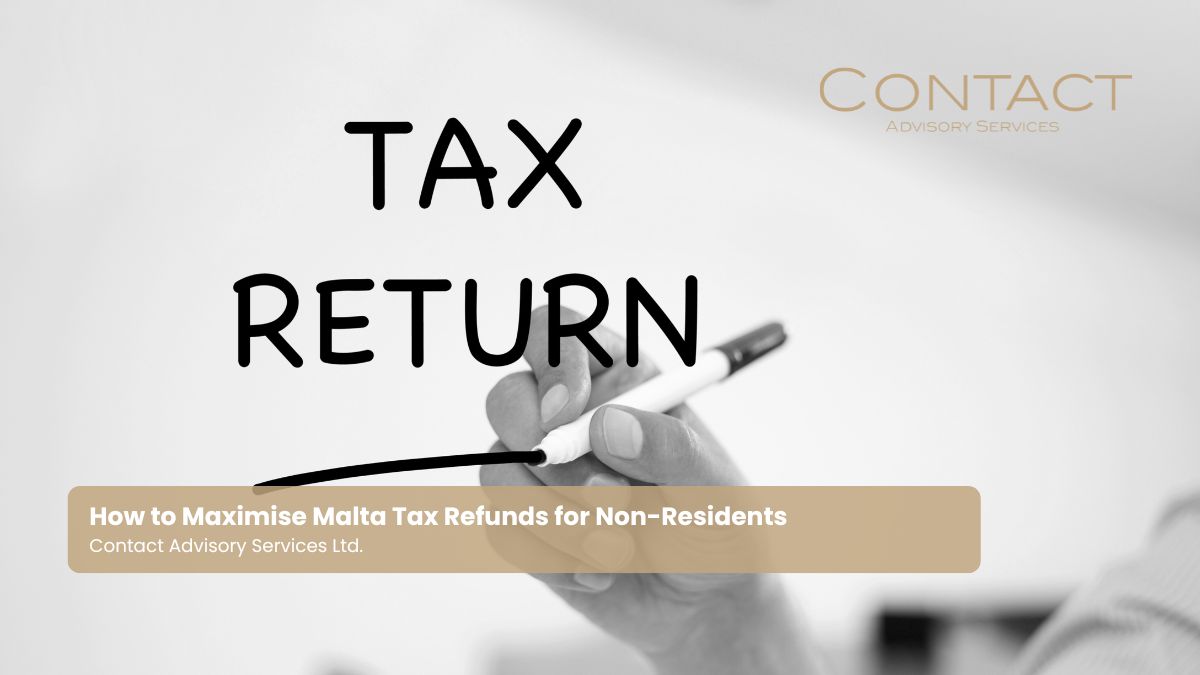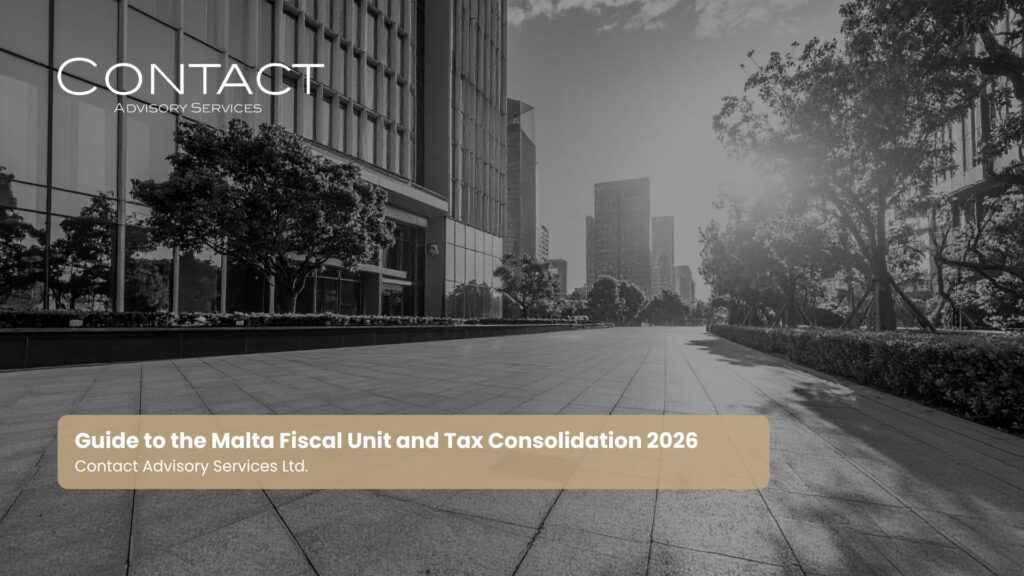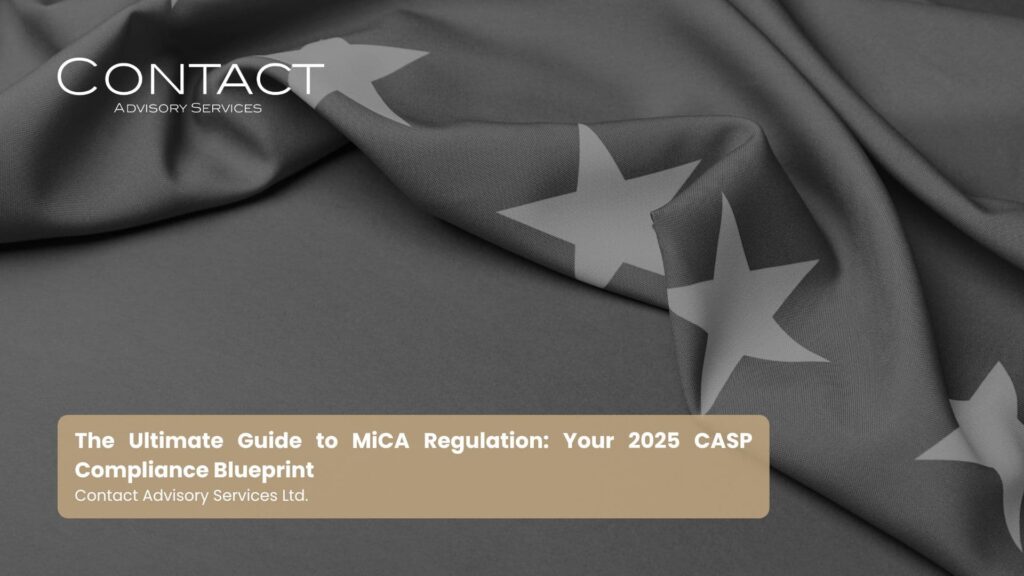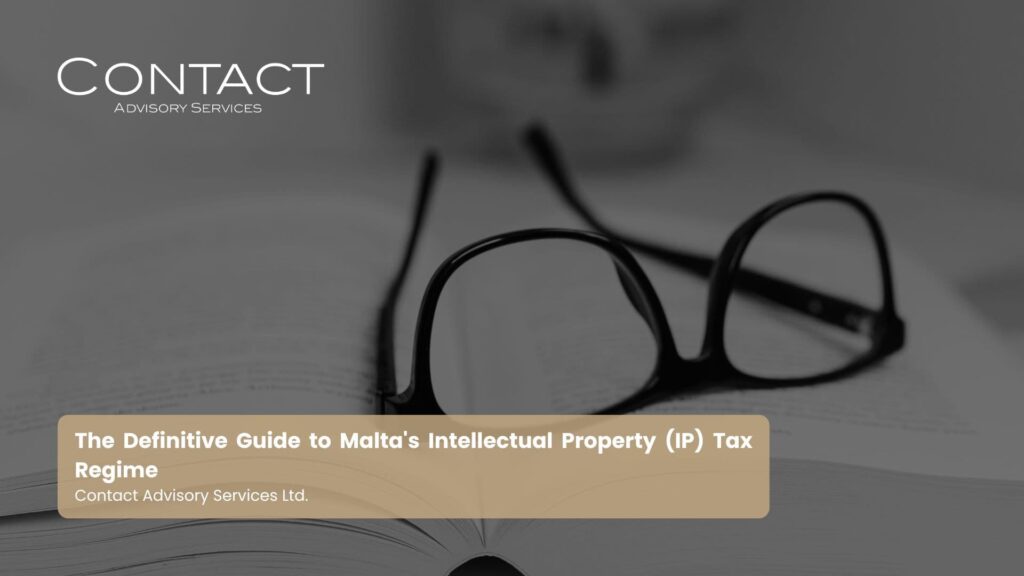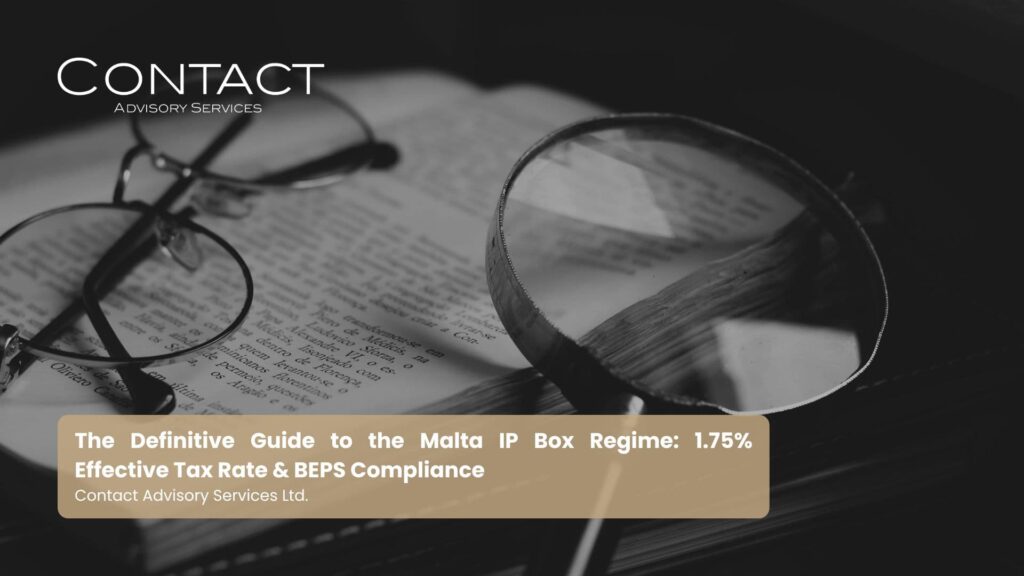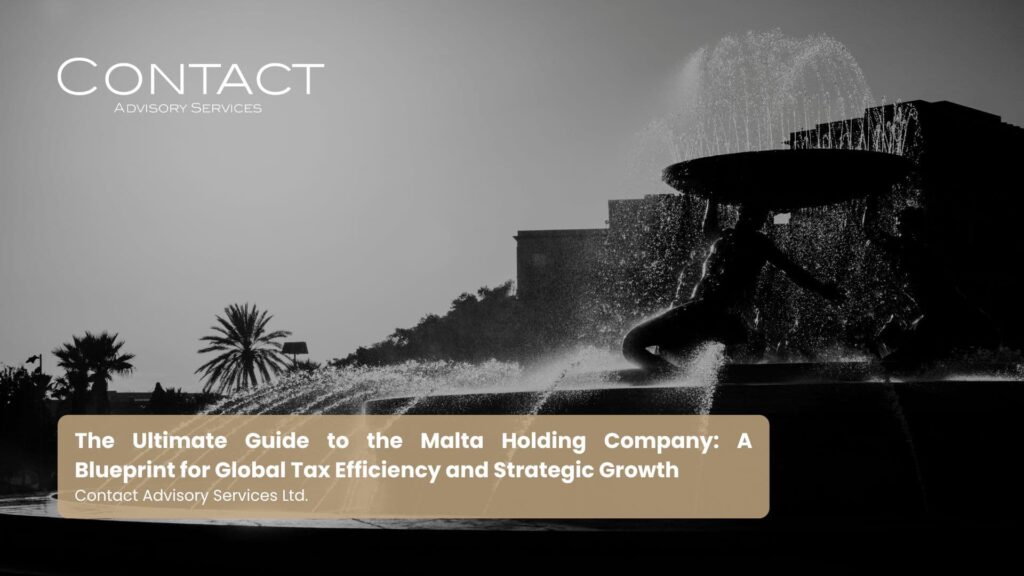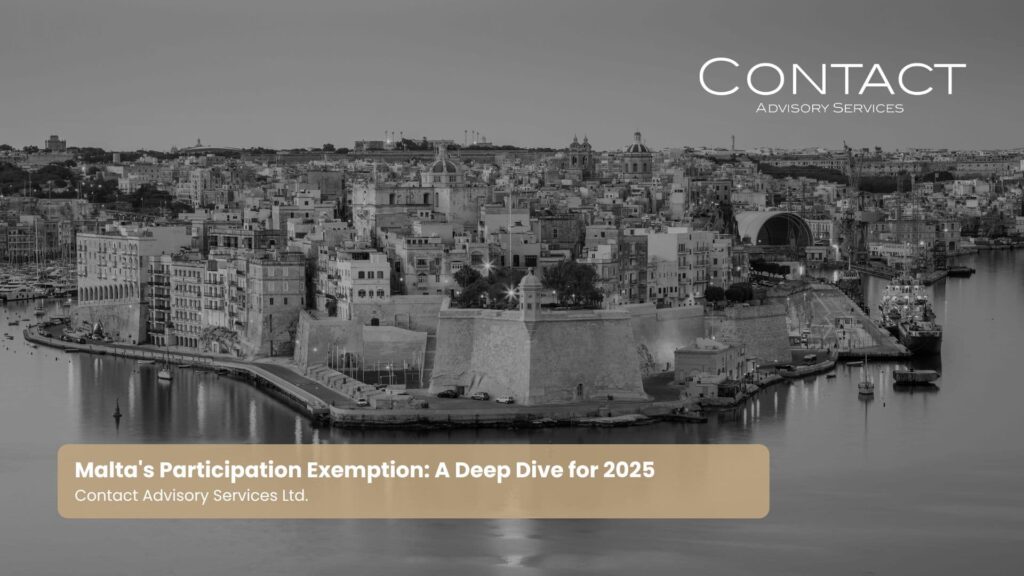Maximising Your Returns: A Non-Resident Shareholder’s Guide to Malta’s Tax Refund System
Malta’s allure as a premier EU business hub extends far beyond its strategic location and skilled workforce. For international investors and businesses establishing a Maltese company, a key attraction is its unique and highly efficient corporate tax system. While the headline tax rate is 35%, the real story for non-resident shareholders lies in Malta’s generous tax refund system. This mechanism can dramatically slash the effective Maltese tax burden on profits distributed by a local company, often resulting in some of the lowest effective tax rates in Europe.
But how exactly does this powerful refund system work for those not residing in Malta? What specific refunds are available – the often-cited 6/7ths, the 5/7ths, or even a full 100% refund? What conditions must be met by both the Maltese company and its non-resident shareholders to unlock these benefits? And what practical steps are involved in claiming these refunds?
As corporate services consultants at Contact Advisory Services Ltd., a significant part of our work involves structuring Maltese companies to ensure eligible non-resident shareholders can fully benefit from this system. This guide is designed specifically for you – the non-resident individual or corporate shareholder. We’ll provide a detailed walkthrough of the Malta tax refund mechanism, clarify the different refund types, explain the eligibility criteria, and outline the process for effectively maximising these returns. Understanding this system is pivotal to appreciating the true financial advantages of your Malta company formation.
The Foundation: Malta’s Imputation System & Corporate Tax
Before diving into the refunds, it’s essential to grasp the basics of how company profits are taxed in Malta. (For a broader overview, see our guide on Malta’s Corporate Tax System Explained.
- Company Pays 35% Tax: A Maltese company pays corporate income tax at a standard rate of 35% on its chargeable profits.
- Full Imputation System: When the company distributes these taxed profits as dividends to its shareholders (resident or non-resident), Malta’s full imputation system ensures that the shareholder receives a credit for the 35% tax already paid by the company. This prevents economic double taxation within Malta.
For non-resident shareholders, this imputation credit sets the stage for the tax refund – it’s the tax paid by the company that forms the basis of the refund to the shareholder.
The Main Attraction for Non-Residents: The Tax Refund Mechanism Explained
The Malta tax refund system allows shareholders, upon receipt of a dividend from a Maltese company out of taxed profits, to claim a refund of part or all of the Malta tax paid by the distributing company on those profits. This system is particularly beneficial and straightforward for non-resident shareholders (both individuals and corporate entities).
Why is it so effective for non-residents?
- No Further Maltese Tax on Dividends: Malta generally does not levy any withholding tax on dividends paid to non-resident shareholders.
- Direct Refund to Shareholder: The refund is paid directly to the shareholder by the Maltese tax authorities.
- Efficient Processing: Refund claims are typically processed relatively quickly by the Maltese Commissioner for Revenue (often within a few weeks of correct submission).
The objective is to achieve a low overall effective Maltese tax rate on the company’s profits once distributed.
Decoding the Refunds: Which One Applies to You?
The proportion of the Maltese tax refundable to the non-resident shareholder depends primarily on the nature of the income earned by the Maltese company from which the dividend is paid. The Maltese company must allocate its profits to different “taxed accounts” (e.g., Foreign Income Account, Maltese Taxed Account).
Here are the standard refunds available to non-resident shareholders:
1. The 6/7ths Refund (Effective Tax Rate: 5%)
- Applicability: This is the most common and widely applicable refund. It applies when the dividend is distributed from profits arising from trading activities. This covers most active business operations – manufacturing, provision of services, sales, etc.
- How it Works: The non-resident shareholder can claim a refund of 6/7ths of the total Malta tax paid by the company on the profits underlying the dividend.
- The Math:
- Assume a Maltese company makes €100 trading profit.
- It pays Maltese corporate tax @ 35% = €35.
- The remaining €65 is distributed as a dividend to the non-resident shareholder.
- The non-resident shareholder claims a refund: 6/7 x €35 = €30.
- Net Malta Tax Suffered: €35 (company tax) – €30 (shareholder refund) = €5.
- Effective Malta Tax Rate: (€5 / €100) = 5%.
- Outcome: The overall tax leakage in Malta on these active business profits, once distributed to a non-resident shareholder, is reduced to an attractive 5%. This is a major driver for businesses choosing to set up a company in Malta.
2. The 5/7ths Refund (Effective Tax Rate: 10%)
- Applicability: This refund applies when the dividend is distributed from profits consisting of passive interest or royalties. Passive income generally refers to income derived with minimal active involvement (e.g., interest from loans, royalties from intellectual property not actively managed).
- How it Works: The non-resident shareholder can claim a refund of 5/7ths of the total Malta tax paid by the company on these profits.
- The Math (Simplified):
- This results in a Net Malta Tax Suffered of 2/7ths of the 35% tax, which equates to €10 for every €100 of such profit.
- Effective Malta Tax Rate: 10%.
3. The 2/3rds Refund
- Applicability: This refund primarily applies when the dividend is distributed from profits allocated to the company’s Foreign Income Account (FIA) and the company has claimed double taxation relief (other than the Flat Rate Foreign Tax Credit – FRFTC) on that foreign-source income.
- How it Works: The non-resident shareholder can claim a refund of 2/3rds of the Malta tax actually paid by the company (i.e., after the double tax relief). The calculation can be more complex as it depends on the amount of foreign tax credit claimed.
- Outcome: The aim is to ensure that the overall tax burden (foreign tax plus net Maltese tax) remains competitive.
4. The 100% Refund (Full Refund – Effective Tax Rate: 0%)
- Applicability: This is highly attractive and typically applies to Maltese holding company structures. A full refund of the Malta tax paid by the company can be claimed by the non-resident shareholder if the dividend is distributed from profits derived from:
- A “participating holding” in another entity (Maltese or foreign).
- The disposal (sale) of a participating holding.
- What is a Participating Holding? Generally, a Maltese company holds a “participating holding” if it holds equity shares in another company (subsidiary or otherwise) and meets one of several conditions, such as:
- Holding at least 5% of the equity shares.
- Being an equity shareholder with an option to acquire the remaining balance.
- Being an equity shareholder entitled to first refusal in the event of a disposal.
- Being an equity shareholder entitled to sit on the Board or appoint a director.
- Holding shares for a total value of at least €1,164,000 (for a continuous period of not less than 183 days).
- Holding shares for the furtherance of its own business (not for trading).
- Additional anti-abuse provisions apply, particularly concerning the nature of the underlying subsidiary’s income if it’s derived from passive interest or royalties that haven’t been taxed at a rate of at least 5%.
- Outcome: If all conditions are met, the non-resident shareholder receives a refund of the entire 35% tax paid by the Maltese holding company on these qualifying profits, resulting in an effective Malta tax rate of 0% on such income/gains. This makes Malta an exceptionally strong contender for establishing international holding company structures.
The Practical Steps: How to Claim Your Malta Tax Refund as a Non-Resident
The process for a non-resident shareholder to claim a tax refund is relatively straightforward, especially when assisted by a Maltese corporate service provider or tax advisor:
- Company Pays Tax & Distributes Dividend: The Maltese company pays its 35% corporate tax to the Malta Commissioner for Revenue. It then declares and pays a dividend to its non-resident shareholder(s). The company will provide the shareholder with a dividend warrant/certificate which also shows the imputed tax credit.
- Shareholder Prepares Refund Claim Form: The non-resident shareholder (or their appointed agent in Malta) completes the prescribed tax refund claim form. This form requires details of the shareholder, the Maltese distributing company, the dividend received, and the underlying profits from which it was paid.
- Supporting Documentation: The claim form is typically accompanied by:
- A copy of the dividend warrant/certificate issued by the Maltese company.
- The tax computation of the Maltese company showing the allocation of profits to the relevant taxed accounts.
- A declaration from the shareholder confirming their non-resident status for Maltese tax purposes (specific forms may be required).
- Submission to Maltese Tax Authorities: The completed claim form and supporting documents are submitted to the Malta Commissioner for Revenue.
- Processing and Payment: The tax authorities review the claim. If everything is in order, the refund is processed and paid directly to the shareholder (usually via bank transfer to a nominated account).
Timeline: Well-prepared claims are often processed efficiently, with refunds typically issued within a few weeks to a couple of months from the date of correct submission.
Role of Your CSP (like Contact Advisory Services Ltd.): We, as your CSP, often play a crucial role in this process. We can:
- Ensure the Maltese company maintains its accounts correctly to facilitate easy identification of profits for refund purposes.
- Assist the non-resident shareholder in preparing and submitting the tax refund claim forms accurately and with all necessary supporting documentation.
- Liaise with the Maltese tax authorities on behalf of the shareholder regarding the claim.
- Receive the refund on behalf of the shareholder (if authorised) and remit it accordingly.
This administrative support is vital for non-resident shareholders to efficiently access their entitlements. It’s an integral part of the comprehensive services offered beyond the initial Malta company registration.
Key Conditions and Considerations for Maximising Refunds
To ensure smooth and successful refund claims, non-resident shareholders should be aware of:
- Accurate Company Accounting: The Maltese company must maintain proper accounting records and correctly allocate profits to the various taxed accounts (Maltese Taxed Account, Foreign Income Account, etc.). This is fundamental for calculating the correct refund.
- Non-Resident Declaration: The shareholder must be able to declare and, if required, substantiate their non-resident status for Maltese tax purposes.
- No Treaty Shopping (Anti-Abuse): While Malta’s system is robust, it’s designed for genuine business structures. Artificial arrangements solely to access tax benefits without genuine substance or commercial rationale may be challenged under general anti-abuse rules (GAAR) or specific anti-abuse provisions (SAAR), especially for participating holdings.
- Tax Implications in Shareholder’s Home Country: Critically important! While Malta may provide a low effective tax rate and efficient refunds, the non-resident shareholder must consider how the dividend income and the Maltese tax refund will be treated for tax purposes in their own country of residence. Some countries may tax the refund, potentially negating some of the Maltese benefits. Double taxation treaties may offer relief, but professional tax advice in the shareholder’s home country is absolutely essential.
- Statute of Limitations: There are time limits for claiming tax refunds, so timely submission is important.
Actionable Tip: Before structuring your investment into a Maltese company, non-resident shareholders should obtain comprehensive tax advice both in Malta (regarding the refund system) and in their country of residence (regarding the tax treatment of Maltese dividends and refunds). This holistic approach is key to true tax optimisation.
The Impact of “Substance” on Tax Benefits
In today’s global tax environment, driven by initiatives like the OECD’s Base Erosion and Profit Shifting (BEPS) project, simply having a “paper company” in a jurisdiction is insufficient to claim tax benefits. For a Maltese company (and consequently its shareholders seeking refunds) to robustly benefit from the tax system, demonstrating genuine economic substance in Malta is increasingly crucial. This means:
- Having adequate physical premises in Malta relevant to the business.
- Employing sufficient qualified personnel in Malta.
- Ensuring key management decisions are made in Malta.
- Incurring operational expenditure in Malta.
While the refund mechanism itself doesn’t explicitly hinge on substance for the shareholder, the underlying profitability and legitimacy of the Maltese company’s claim to be taxed in Malta does. Lack of substance for the company could invite scrutiny that indirectly affects the entire structure. Building genuine operations is part of a sustainable Malta business setup.
Conclusion: A Powerful Tool for Non-Resident Investors in Maltese Companies
Malta’s tax refund system offers a clear, efficient, and legally robust mechanism for non-resident shareholders to significantly reduce the effective Maltese tax rate on profits distributed by their Maltese companies. With effective rates as low as 5% on trading income and 0% on qualifying participation holding income, the system is a powerful incentive for international investment and a cornerstone of Malta’s appeal as a business jurisdiction.
The key to successfully maximising these refunds lies in:
- Correctly structuring the Maltese company and its activities.
- Meticulous accounting and allocation of profits by the Maltese company.
- Accurate and timely submission of refund claims by the non-resident shareholder.
- Understanding and complying with all eligibility criteria and anti-abuse provisions.
- Crucially, obtaining comprehensive tax advice in both Malta and the shareholder’s country of residence.
At Contact Advisory Services Ltd., we specialise in guiding non-resident investors through the entire process, from the initial Malta company formation to ongoing administrative support for tax refund claims, ensuring you are well-positioned to benefit fully from Malta’s attractive fiscal environment.
Are you a non-resident looking to invest in or establish a Maltese company and want to understand how the tax refund system can work for you?
Get in touch with Contact Advisory Services Ltd. for expert guidance and tailored solutions. Learn more about our comprehensive corporate services.
Email: info@contact.com.mt

